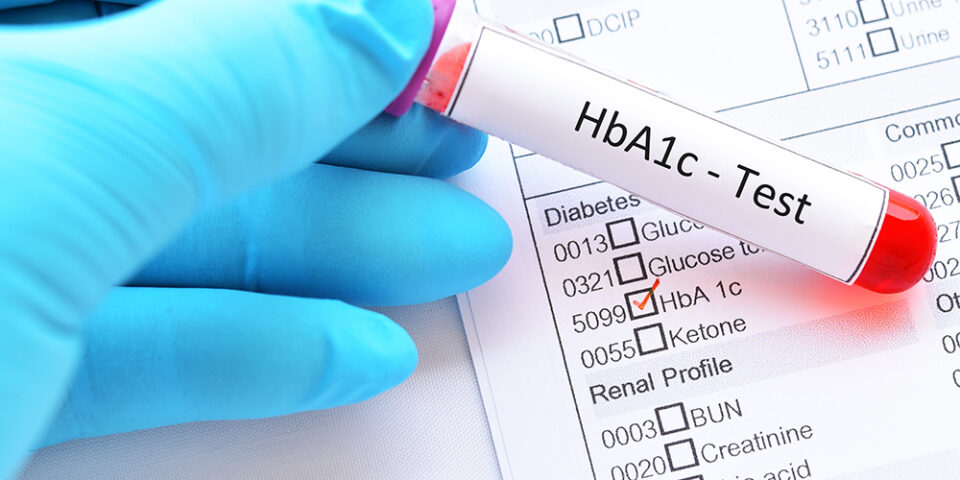Does a high A1c test mean you have diabetes?
An A1c test may be ordered in addition to other blood tests that measure additional aspects of your overall health, including HDL and LDL cholesterol levels, triglycerides, your red blood cell count and more. An A1c test measures your blood sugar levels and is often used as a way to help diagnose prediabetes or diabetes – conditions that may go undetected for a time and can be difficult to treat early otherwise.
Does a high A1c test mean you have diabetes? Sandra Hardee, MD, explained what it means if your A1c test result is too high and what to do next.
What a normal A1c test result looks like
“A1c results show as a percentage, with a higher percentage indicating higher-than-average blood sugar levels,” said Dr. Hardee. “There’s a range of normal, a range considered prediabetic, and a range that indicates a diabetes diagnosis.”
- Below 5.7%: Any result below 5.7% is considered a normal blood sugar level.
- 5.7% to 6.4%: Higher-than-average, this is considered a prediabetic level and indicates that you have a higher risk of becoming diabetic.
- 6.5% or higher: Results this high on two tests indicate diabetes.
For those who are already diagnosed as diabetic, ongoing A1c tests can help keep track of blood sugar levels as part of your treatment plan. For most adults with diabetes, a result of less than 7% is often the target result, although different doctors may have different targets for their own patients.
Why your doctor wants to know your blood sugar levels
“A1c tests are used to confirm a type 1 or type 2 diabetes diagnosis, but they can help your doctor know when to work with you to actively prevent diabetes, too,” said Dr. Hardee. “For those who are diabetic, these test results can help you lower your potential risk of diabetes-related complications.”
How often the test is needed depends on your current health. Those who are prediabetic may be asked to do an A1c test each year to monitor for any changes or signs that they have become diabetic, while diabetics who don’t use insulin and still have blood sugar levels within the target range will likely test about twice a year.
People diagnosed with diabetes who take insulin or have had trouble keeping blood sugar levels within the correct range may need to test four times per year.
Tests may also be ordered if treatment plans change or you begin taking new medications that might affect blood sugar levels.
Do you need to fast before your A1c test?
“While you might be asked to avoid eating or drinking before having a panel of multiple blood tests performed, the A1c test itself doesn’t require fasting,” said Dr. Hardee. “You should be fine to eat and drink normally before the test, unless your doctor says otherwise.”
Once the results are in, your doctor will follow up with you on any next steps or further actions you need to take.
Need help managing your diabetes?
We offer advanced treatment and education programs to help you live with diabetes in a way that fits your lifestyle.
Learn More

